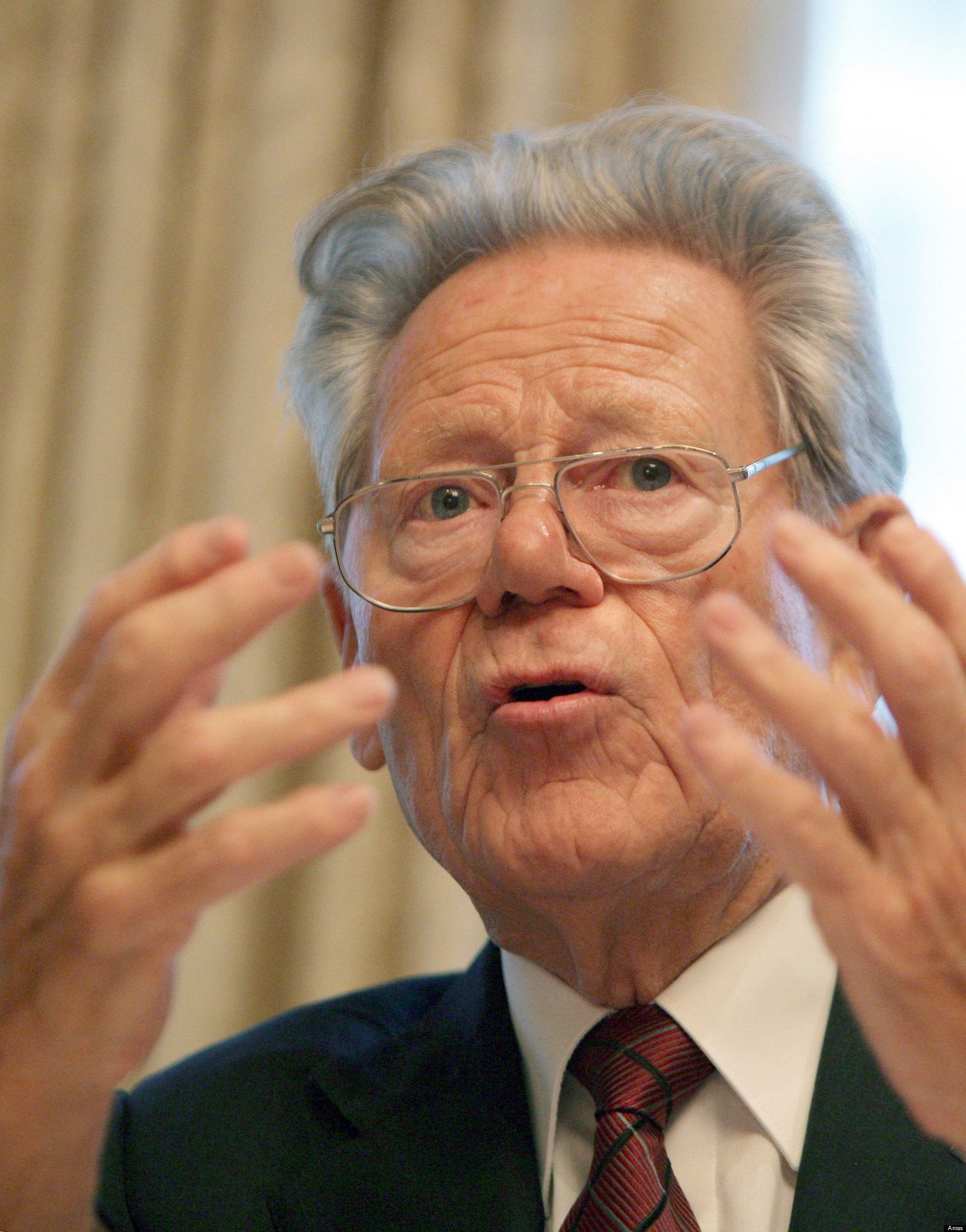
Ethics, key to success in business
Hans Küng, one of the most important social thinkers in the world in the last century, is recognized as the father of global ethics, which constitutes the great foundation of modern Corporate Social Responsibility. This report shows why.
Ethics, key to success in business
By: Jorge Emilio Sierra Montoya (*)
Why is ethics important in the economy and in companies? It was the question asked to Hans Küng, one of the most important thinkers of the last century in the world, who visited Colombia to preside The Week of World Ethics in Economics and Politics. The question did not take him by surprise. Truth be told, it was as if he waited for it. “Neither the economy nor the companies will succeed without ethical standards,” he responded immediately in clear, fluent Spanish, though with the corresponding German accent.
And he went on to explain that phrase, in a didactic style, of an expert teacher, who exhibited in his many published works (some of them, authentic bestsellers in different languages), in his lectures throughout the planet or in centers Educational institutions as prestigious as the University of Tubinga. He explained, however, that today we are facing the phenomenon of globalization and that this is therefore an undeniable fact, inevitable and irreversible, whose effects are both positive and negative, as it tends to be admitted, he said, “by many people.”
However, it is precisely to avoid the negative effects of globalization, where ethical aspects come into play, or must enter, as he has put it so insistently. And it is not that this implies, he observed, a serious obstacle to business activity but, on the contrary, it is a key, determining factor, vital for companies to succeed in the long run, as well as economies. Thus, the validity of his initial assertion was confirmed.
Casino Capitalism
According to Küng, today there is enormous uncertainty about the future of the world, after the two ideologies, left and right (Marxism and Nazi-fascism, it should be noted), which in the last century sought to dominate it based on allegedly scientific criteria. And although both totalitarian systems went down, the threat of the destruction of humanity has not disappeared, especially when the leaders of today present only “banal solutions.”
“The world is facing a paradigm in politics, economics and social life, is one of his central thesis, which ends conclusively, opening the way to his theory welcomed by the United Nations Organization: It is a great moment to resume the spiritual and ethical vision”, discarding in advance that this is a new utopia.
“My project of global ethics,” he observed enthusiastically, “proposes the opposite: nothing that is unworkable or a program for dreamers and moralists.” It is the rediscovery of ethics, strictly speaking. It is, therefore, a global ethic, which is quite useful for companies to develop long-term strategies based on vision, which is, as is well known, strategic planning.
This was the thesis he presented at the World Economic Forum in Davos, Switzerland, which now complements critical, sometimes devastating approaches to business, entrepreneurship and economics, such as those formulated at the conference on Ethics in Economics, Dictated in Bogota.
In fact, there he questioned the characteristic narcissism of some entrepreneurs and executives, who possess, “he declared, with certainty offending some of his listeners,” an excessive appreciation of themselves, which demands the recognition of others as superior beings, while they elaborate fantasies of success and power without limits, worthy, according to what they think, of the fulfillment of all their desires.
He also criticized the current economy for moving away from the real world, from production, to fall into the hands of speculation, the unbridled mood of investors or, ultimately “casino capitalism”, where the greed of money and Fear of losing it is what matters. “It just takes the morale to fail so that the economy and the companies do not work,” he noted.
The Global Compact
The failure of morality generates corruption, if not loss of confidence, resulting from the absence of Corporate Social Responsibility. Therefore, a new global economic order, increasingly demanded by the community, is required by public opinion, which expects not only economic efficiency in business, but also to be governed by a “macroeconomic order”, for the global ethics in which it insists at every moment.
That is his greatest contribution to the UN, an organization that adopted such criteria, from the general secretariat of Kofi Annan, in his project Global Compact, which imposes on companies a true decalogue of modern ethics, a fundamental principle of CSR.
Those who subscribe to this pact are committed to human rights, the elimination of forced or child labor, protection of the environment, etc., principles valid in their concept, worldwide, as they are necessary for the coexistence in towns and the survival of man.
This reality is usual, he said in his lecture, in front of an auditorium full of professors and university students, in multinational companies, even in their publicity campaigns (with transparency and sincerity), effective renunciation of bribery and Non-discrimination based on race or sex.
“Global Compact is a breakthrough, but it still lacks a lot,” he said in a critical spirit.
Colophon
Finally, I consider it legitimate that employers seek their own benefit, clarifying that “this is not enough either”; That companies still depend quite a bit on their managers, who must be required to comply with ethical standards, which embody CSR through a culture of solidarity and a fair economic order.
“The right to property is enshrined, but it also has obligations, especially with the poorest in the world,” he said.
(*) Advisor on Corporate Responsibility – jesierram@gmail.com
